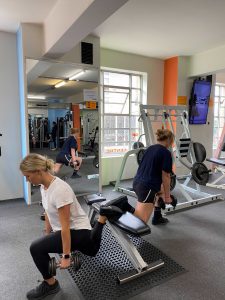Exercise Prescription for Mental Health
Today, Longevity Exercise Physiology Drummoyne, Edgecliff, Marrickville, Bella Vista, Randwick, Pymble, and Balmain look at what type of exercise is best for mental health. In Australia, mental illness is the third largest burden of disease behind cancer and cardiovascular disease. Mental illness can result in sedentary behaviour, increased weight gain, low levels of physical activity and insomnia, all of which result in increased risk of cardiovascular disease. This is why exercise is most important in mental health interventions both physically and mentally.
The question is… which type of exercise is most beneficial for an individual with mental illness. I believe the answer is whatever type of exercise, physical activity or sport that the individual enjoys most, whether it be aerobic or resistance exercise.
‘Most people have gone for a jog before and felt 10x happier afterwards; this is due to the release of mood enhancing hormones called endorphins and a reduction of stress hormones’
Aerobic exercise (including brisk walking, running, cycling, swimming)
I’m sure most people have gone for a jog before and felt 10x happier afterwards; this is due to the release of mood enhancing hormones called endorphins and a reduction of stress hormones. This type of exercise improves mood by decreasing both anxiety and depression and is said to be as effective as anti-depression medication in the treatment of mild cases.
Resistance or strength training
Similar to aerobic exercise, strength training also improves mood by alleviating feelings of depression and anxiety. Resistance training is also proven to improve an individuals self esteem which may better their overall mental wellbeing.
Sports
Being involved in team sports, or exercising in a group results in improved mental health by increasing social interaction and improving cognitive and social skills.

Exercising outdoors
Both aerobic and resistance exercise can be completed outdoors, in your garden, the park, the beach with little to no equipment needed. Exercising in the fresh air is linked with increased feelings of revitalisation and decreases in tension, anger and confusion.
If you or anyone you know would benefit from exercise as a result of mental illness, give us a call on 1300 964 002.
Written by Shannon Coolican

